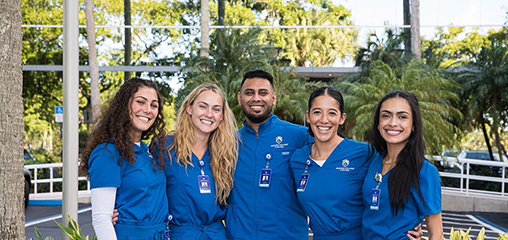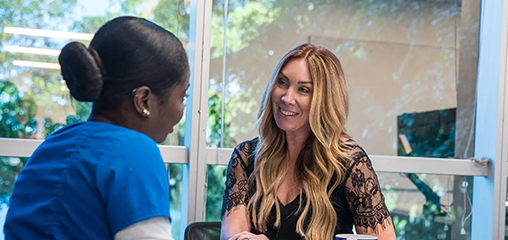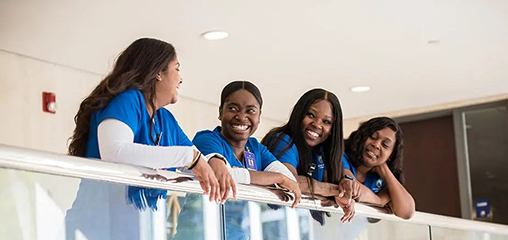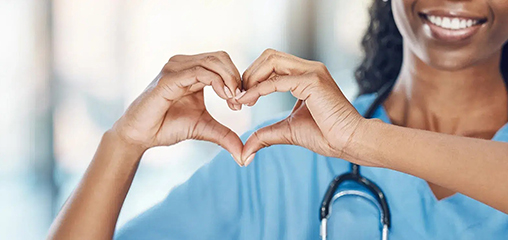
Written by Curtis Anderson, Arizona College of Nursing faculty
My fascination with the heart began as a 10-year-old when I listened to heart sounds in health class, and my love for hearts only grew from there. I met my wife while studying the cardiac cycle in our anatomy and physiology course. During my first week of nursing, I cried hearing how a heart transplant had changed a man’s life. My wife and I even had small diagrams of the cardiac cycle displayed at our wedding.
I often tell my students the heart is the best organ. It is simple yet complex. Independent, yet reliant. Resilient, yet fragile. If your heart stops beating, your brain dies in a matter of minutes. Were you to lose your brain, your heart would keep on beating for up to several days.
But I can admit that hearts do have some flaws. One flaw is that the heart needs blood to continue to beat. In fact, of the blood the heart pumps out, 5% goes right to the heart to keep it pumping. And your heart really needs oxygen. Without oxygen, the heart tries to keep on beating and, in doing so, damages or kills its own cells. This is myocardial infarction (MI), commonly known as a heart attack. It affects almost (1 million people) annually in the United States. If survived, it can lead to heart failure, arrhythmia, and worsening quality of life.
Why do we have heart attacks?
 Your coronary arteries are the arteries that supply your heart with blood. They are also what gets clogged off in a heart attack. We call this coronary artery disease. Most of these flow issues are because coronary arteries have built up plaque, narrowing the artery and eventually getting to the point where blood flow is impaired. Coronary heart disease impacts overall quality of life and is possibly life-ending.
Your coronary arteries are the arteries that supply your heart with blood. They are also what gets clogged off in a heart attack. We call this coronary artery disease. Most of these flow issues are because coronary arteries have built up plaque, narrowing the artery and eventually getting to the point where blood flow is impaired. Coronary heart disease impacts overall quality of life and is possibly life-ending.
Everybody has some tendency to build up plaque, but three things primarily influence our specific body’s proclivity towards plaque: genetics, activity level, and diet.
How do you know if you’re having a heart attack?
There are some typical symptoms like chest pain, rapid heartbeat, and shortness of breath that are universal signs of a heart attack. However, some symptoms can be misdiagnosed or explained away. Women and people over the age of 65, are more likely to experience what are referred to as “atypical” heart attack symptoms.
Atypical symptoms can include:
1. Pain in your neck, jaw, arms, or shoulder blade
2. Fainting
3. Extreme Fatigue
4. Nasua and vomiting
5. Gastral intestinal issues
6. Lightheadedness
7. Body aches
8. Sweating
9. Swelling of your feet and legs
Some of these symptoms can accompany chest pain, but not always. The more we can recognize these “atypical” symptoms and screen for them earlier, the better we can prevent a heart attack or catch it early. The best advice I can give is, if something feels or appears irregular, trust your instincts, and see your doctor.
How can you reduce your risk of a heart attack?
The best treatment for a heart attack is to never have one. Unfortunately, you can’t change genetics. If your parents, grandparents, eccentric uncle, annoying cousin, or anyone else in your family had a heart attack, that makes you more likely to have one as well. Let’s move on to what we can change.
It’s not groundbreaking to advocate for improving your diet and increasing your activity. We continue to bang the drum because there is absolutely nothing more effective in the fight against heart disease.
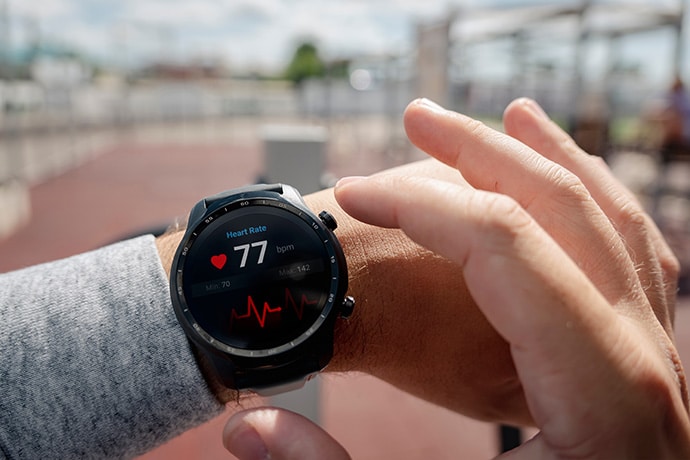 The American Heart Association recommends 150 minutes of moderate activity, or 75 minutes of vigorous activity, per week. As for what you choose to do for this activity, it does not really matter. You can bike, run, lift weights, canoe, underwater basketweave, army crawl across a field of broken glass, or play pickleball (this list is ranked in terms of my personal preference). The important thing is to do something active regularly.
The American Heart Association recommends 150 minutes of moderate activity, or 75 minutes of vigorous activity, per week. As for what you choose to do for this activity, it does not really matter. You can bike, run, lift weights, canoe, underwater basketweave, army crawl across a field of broken glass, or play pickleball (this list is ranked in terms of my personal preference). The important thing is to do something active regularly.
Now, let’s talk about diet. If I had one piece of advice, I would say, “Stop buying things that say low fat; you want HEALTHY fat.” What are healthy fats, and what should you eat? Foods that have unsaturated fat, especially something called monounsaturated fat. Some excellent foods include:
1. Avocados (Some even have their own catchy jingle)
2. Most nuts, such as peanuts, cashews, pecans, or almonds. Their respective butters also carry these fats, although not as well, and watch for added sugar.
3. Seeds, such as sesame or sunflower seeds
4. Olive oil. It can be expensive but way less expensive than bypass surgery. I highly recommend olive oil over bypass surgery.
But not all fats are created equal. Saturated fats are much worse for you and can be found in butter, meats, pastries, and most other foods that make life enjoyable. These fats raise your LDLs and lower your HDLs. This is an unfortunate fact of life, so enjoy these foods SPARINGLY. Cutting them out altogether is generally a poor choice. (As I write this, I am eating a brownie). Instead, replace these foods with fats that are good for you.
If you are a person who never exercises or never thinks about what kind of fat they are eating, you are not alone! I, too, used to be a person like you, even after becoming a nurse. It was when I worked at the Cardio unit and saw people in their 40s and 50s having heart attacks that I committed to extending the life of my heart. Now, I exercise most days and generally eat healthy. Although, as I mentioned, I will always love brownies. But I love my heart more!
If you are concerned about your heart health or don’t know your risk, visit your healthcare provider. They can recommend changes to help reduce your heart attack risk. As with most things in life, it is little choices and actions we take that make the biggest difference. Make one more healthy decision today than you made yesterday. Sometimes, that is all it takes to set you on a better way and protect your heart.
 Curtis Anderson is a full-time faculty member at Arizona College of Nursing. Anderson started his nursing career as a bedside nurse, primarily working with cardiac patients. He is a passionate educator who believes training future nurses is changing the world, one student and one person at a time. Anderson and his wife are expecting their first child!
Curtis Anderson is a full-time faculty member at Arizona College of Nursing. Anderson started his nursing career as a bedside nurse, primarily working with cardiac patients. He is a passionate educator who believes training future nurses is changing the world, one student and one person at a time. Anderson and his wife are expecting their first child!
Start Your Future in Nursing Today
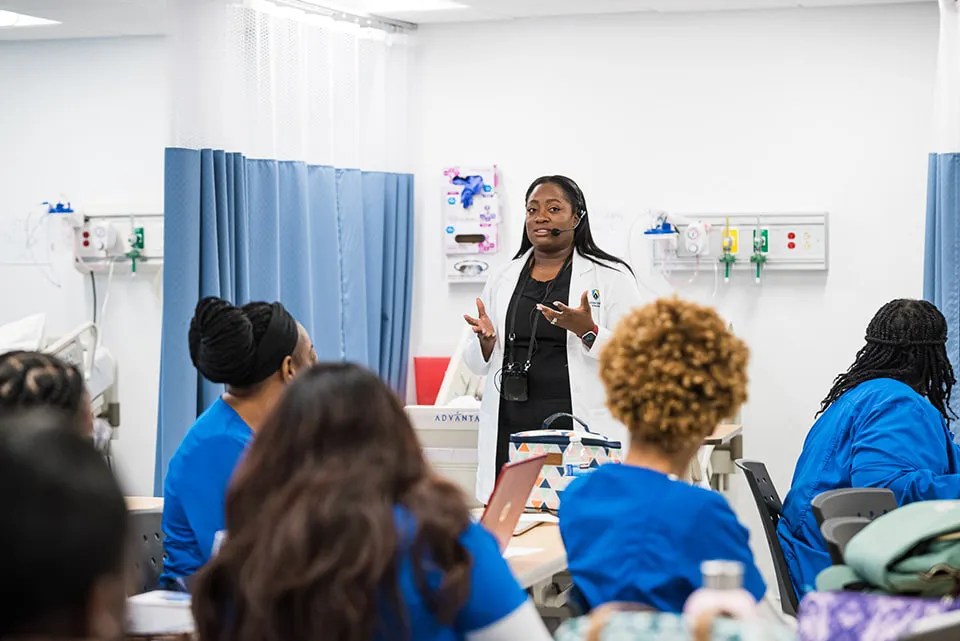
If you’re considering a career as a registered nurse (RN), Arizona College of Nursing is here to help you pursue your dream. Our BSN program enables you to earn a Bachelor of Science in Nursing in just 3 years or less with qualifying transfer credits. We’ve helped hundreds of students to earn a BSN degree and enter the nursing profession – and we’re ready to support you on your path to becoming an RN.
Why Choose Arizona College of Nursing?
- Earn a BSN degree in 3 years or less with eligible transfer credits
- Campus locations throughout the US
- Night classes for general education courses
- Hybrid Online/In-Person format for general education classes
- Nursing education is all we do
- CCNE-Accredited Program*
- NCLEX-RN success coaches and exam preparation class
- Financial aid available to those who qualify
Discover Your Path to a Career in Nursing
Information in this post is accurate as of January 31, 2024.
*The Bachelor of Science in Nursing (BSN) degree program at Arizona College of Nursing is accredited by the Commission on Collegiate Nursing Education (https://www.aacnnursing.org/). All Arizona College of Nursing and Arizona College campuses are institutionally accredited by the Accrediting Bureau of Health Education Schools (https://www.abhes.org/), a U.S. Department of Education-recognized accrediting agency.
